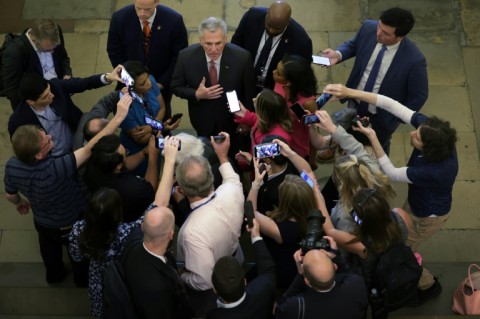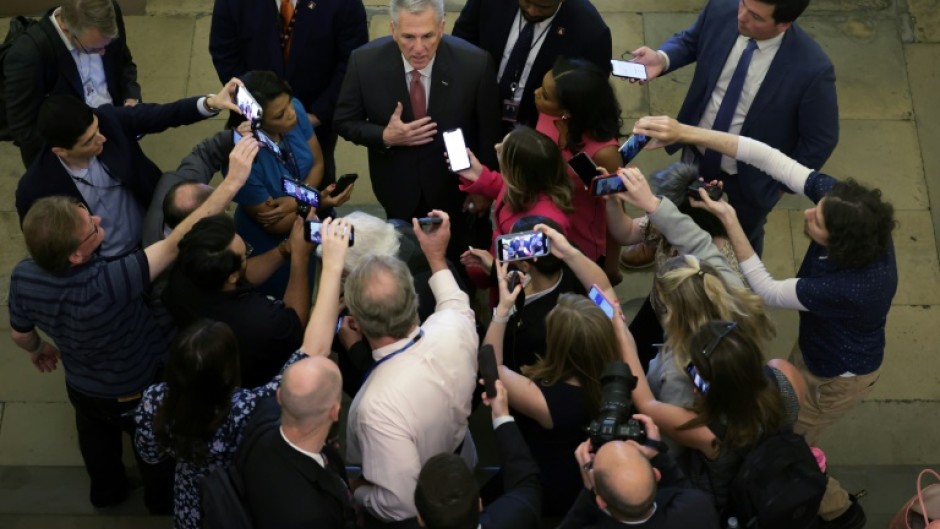
US lawmakers were set to embark on a 10-day break Thursday, despite failing to agree on raising the nation's borrowing limit to avert a looming default that could come while they are away.
There are seven days until June 1 -- the earliest possible point when the government estimates it could run out of money to service its debts -- and missed loan repayments would send the US economy into a tailspin, roiling world markets.
But members of the House of Representatives began hitting the road for the Memorial Day recess after their final vote Thursday morning and are not due to return until June 4.
Senators are due back two days before the so-called "x date" but their role would likely be limited to rubber-stamping any deal hammered out between the Republican-led House and Democratic President Joe Biden.
House Speaker Kevin McCarthy said lawmakers would get 24 hours' notice if they were required to return for a vote, with Republicans and the White House reportedly closing the gap on their differences.
Republicans are demanding cuts of up to $130 billion with spending next year capped to 2022 levels and have laid out three further pillars for a deal: reform of approval for energy projects, tightened work requirements for benefits recipients, and clawing back unspent pandemic aid dollars.
Democrats reject the proposed cuts and want the Republicans to agree to a hike in the legal borrowing limit without conditions attached, as they have dozens of times in the past.
- Skepticism -
Speaking on Fox News Thursday, McCarthy rejected demands for a "clean" bill and added that he would not agree to any tax increases on corporations or the rich as an alternative to cuts for reducing the nation's $31 trillion-plus debt burden.
He pointed to a CNN poll out this week in which 60 percent of respondents said a debt ceiling hike should be accompanied by cuts, although 51 percent of respondents in a new Monmouth University survey said they want the two issues to be de-linked.
"We know where our differences are, and we will continue to be at the table to try to solve this problem," McCarthy said.
Any agreement would require at least two days to be formalized in legislative language and McCarthy has insisted he will allow lawmakers three days to read any text before voting.
A rubber stamp from the Senate would normally take a further week, although party leaders hope they can speed up this part of the process.
A batch of Social Security payments worth about $25 billion is scheduled to go out on June 2 and those payments could be halted if the Treasury Department is unable to cover loan repayments.
An estimated 27 million Americans would fall below the poverty threshold without Social Security.

